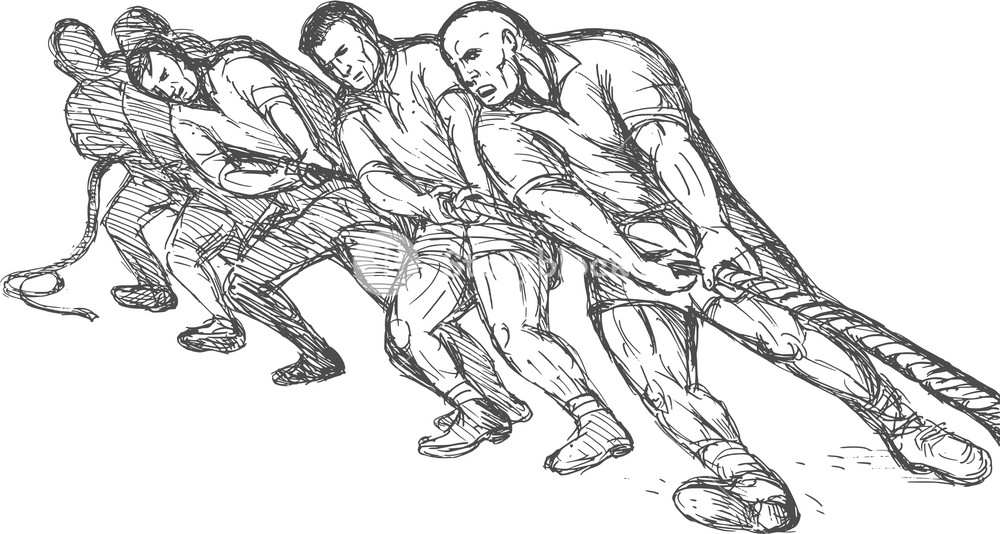In 1913, Max Ringelmann observed something interesting about humans. Ringelmann, a French agricultural engineer, took a rope and asked people to play tug of war.
Then he requested the same people to tug at the rope with a group of people. He found that once human beings are pulled with a group, they choose not to try hard and effort less energy than when pulling the rope on their own and it is called The Ringelmann Effect. It describes the tendency for personal productivity to decrease as the number of members increases in a group. And it doesn’t simply occur in tug-of-war games: We can also observe this effect in big companies like Google and Facebook more than a century after Ringelmann’s discovery.
Human beings are assigned to group initiatives in school, we play sports with a crew, and we create venture forces to perform huge desires at paintings. It appears affordable to assume that more human beings could get extra paintings done. And generally, I’d say this holds real in maximum cases. The larger the number of members in a group, the greater difficult it is far to assess individual performance. And while no one is noticing what you’re or aren’t doing, the much less difficult it is far to hold doing nothing. The painting gets done, yes, because of the fact a person has to do it. But it mustn’t be you. Because of the Ringelmann Effect, many people don’t vote, because of the fact they assume it won’t make a difference. It’s why dozens of human beings watched Kitty Genovese get murdered in New York in 1964, because of the fact in reality that someone else was doing something about it.
Sometimes, the solution to that query doesn’t fall inside your activity description or discipline of expertise. In a few cases, you may be extra robust with the resource of using growing a clean pot of espresso for the crew in the vicinity of spitballing thoughts. In the one’s instances, make the espresso. In other instances, you could persuade yourself you’d be extra beneficial with the resource of using letting different human beings lead the conversation. If that’s the case, then take notes. Interject your thoughts as quickly as you’ve had a while to mull them over outdoor institutions. Then ship your notes out to the crew and decide the manner you healthy into the subsequent steps.
Finally, when you pick to be beneficial, you’re counteracting the Ringelmann effect. And affecting your surroundings is a lot more enjoyable than coping with its results. It can be clean to sit down and allow others to do the paintings, however, a clean lifestyle isn’t a satisfying lifestyle. A beneficial lifestyle, though, is a wholly extraordinary story.

